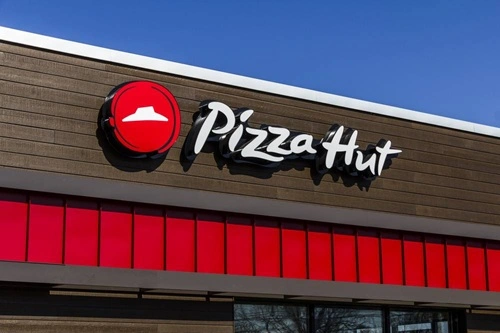India’s quick-service restaurant (QSR) market has been experiencing exponential growth, driven by the evolving food preferences of a young and urban population. One of the most popular brands in this space is Pizza Hut, known for its wide variety of pizzas, pastas, and signature sides. As part of Yum! Brands, which also owns KFC and Taco Bell, Pizza Hut enjoys a strong global reputation and a loyal customer base in India.
For aspiring entrepreneurs, owning a Pizza Hut franchise in India can be a lucrative opportunity, offering access to a proven business model, robust operational support, and a well-established customer base. However, understanding the Pizza Hut franchise cost in India, along with investment requirements, profit potential, and application processes, is essential before making an investment decision.
Why Invest in a Pizza Hut Franchise in India?
Pizza Hut’s success in India is attributed to its innovative menu, affordable pricing, and strategic focus on both dine-in and delivery services. The brand has been expanding aggressively, tapping into India’s growing appetite for pizza and Western cuisine.
Here are some reasons why investing in a Pizza Hut franchise makes sound business sense:
- Established Brand Value: With a strong brand presence globally and in India, Pizza Hut guarantees customer trust and instant recognition.
- Growing Pizza Market: The Indian pizza market is expected to grow at a CAGR of 15% over the next five years, driven by increasing urbanization and changing eating habits.
- Operational Expertise: As part of Yum! Brands, Pizza Hut offers extensive support in terms of staff training, supply chain management, and marketing strategies.
- Versatile Franchise Models: Pizza Hut offers various franchise formats catering to different market needs and investment capacities.
Types of Pizza Hut Franchise Models in India
Pizza Hut offers multiple franchise formats to suit various locations and budgets. The major types of franchise models are:
Dine-In Restaurants:
- Full-service restaurants located in malls, commercial hubs, and high streets.
- Require higher investment but offer larger seating capacity and higher revenue potential.
Delivery and Carryout Units (DELCO):
- Outlets focusing primarily on delivery and takeaway services.
- Require lower investment with faster turnaround times.
Express Outlets:
- Small-format stores typically located in food courts, airports, and colleges.
- Focus on quick service and have lower setup costs.
The investment requirement varies depending on the chosen franchise model, location, and store size.
Pizza Hut Franchise Cost in India: Detailed Investment Breakdown

The cost of a Pizza Hut franchise in India varies based on factors like franchise model, city tier, and store size. On average, the initial investment ranges between ₹2 crore to ₹4 crore. Here’s a detailed breakdown:
Franchise Fee:
The one-time franchise fee for a Pizza Hut outlet in India ranges from ₹35 lakh to ₹50 lakh, depending on the franchise model and location.
Store Setup and Construction Costs:
- Setting up a store involves costs related to construction, kitchen equipment, furnishings, signage, and interior design.
- These costs can range from ₹1 crore to ₹2.5 crore, depending on store size and format.
Working Capital:
- Franchisees must allocate ₹20 lakh to ₹30 lakh for operational expenses such as staff salaries, utilities, and raw materials.
Royalty Fees:
- Pizza Hut charges a royalty fee of 6% of gross sales, which covers ongoing support in marketing, supply chain management, and operational training.
Marketing and Advertising Costs:
- Franchisees are required to contribute 4% to 5% of gross sales towards local and national marketing campaigns.
Eligibility Criteria for Owning a Pizza Hut Franchise in India
Pizza Hut follows a rigorous selection process to ensure franchisees can meet its global standards. The essential eligibility criteria include:
Financial Capability:
- Applicants must have a net worth of at least ₹3 crore and the ability to invest ₹2 crore to ₹4 crore in the business.
Business Acumen:
- Prior experience in the food and beverage sector or retail industry is preferred but not mandatory.
Operational Commitment:
- Pizza Hut expects franchisees to be actively involved in the daily operations of the franchise.
Location Requirements:
- The proposed store location should meet Pizza Hut’s strategic requirements in terms of visibility, accessibility, and customer traffic potential.
Steps to Apply for a Pizza Hut Franchise in India
To apply for a Pizza Hut franchise in India, follow these key steps:
Market Research and Feasibility Study:
- Conduct a detailed analysis of the target market, competition, and customer preferences to determine the best franchise model and location.
Submit the Franchise Application:
- Interested applicants can apply through the official Yum! Brands India website or Pizza Hut’s dedicated franchise portal.
Screening and Interview:
- Pizza Hut evaluates applications based on financial capability, business experience, and operational skills. Shortlisted candidates are invited for interviews.
Location Finalization:
- The franchisor evaluates the proposed location based on strategic requirements and customer demographics.
Signing the Franchise Agreement:
- Once approved, the franchisee signs a detailed franchise agreement outlining operational guidelines, revenue-sharing terms, and brand compliance obligations.
Training and Store Launch:
- Pizza Hut provides comprehensive training programs covering store management, food preparation, customer service, and operational standards before the store launch.
Profitability and Return on Investment (ROI)
A Pizza Hut franchise in India offers attractive profitability prospects due to the brand’s widespread appeal and robust operational systems. Here’s a breakdown of the expected returns:
Annual Revenue:
- A well-located Pizza Hut outlet can generate ₹3 crore to ₹5 crore annually, depending on customer footfall and market demand.
Profit Margins:
- Profit margins typically range from 12% to 15%, depending on operational efficiency and sales performance.
Break-even Period:
- The average break-even period is 3 to 5 years, depending on the store’s performance, cost management, and local market conditions.
Challenges of Owning a Pizza Hut Franchise in India
While owning a Pizza Hut franchise offers significant returns, potential franchisees should be aware of certain challenges:
High Initial Investment:
- The capital requirement can be a barrier for small investors.
Strict Compliance Requirements:
- Franchisees must adhere to Pizza Hut’s global standards for quality, service, and hygiene.
Operational Complexity:
- Managing a QSR outlet requires expertise in supply chain management, staffing, and customer service.
Competitive Market:
- The pizza segment in India is highly competitive, with players like Domino’s, Papa John’s, and local brands competing for market share.
Conclusion
Investing in a Pizza Hut franchise in India is a rewarding opportunity for entrepreneurs with the financial resources and operational expertise to manage a fast-paced business. With its strong brand presence, customer-centric approach, and growing demand for Western fast food, Pizza Hut offers a sustainable and profitable business model.
However, prospective franchisees must be prepared for the significant initial investment and the operational challenges that come with running a QSR outlet. For those who meet the eligibility criteria and are committed to maintaining Pizza Hut’s high operational standards, franchising with Pizza Hut can lead to long-term profitability and success in India’s thriving food service industry.

Shashi Kant is the Founder and Editor of BusinessScroller.com, a leading platform for business insights, finance trends, and industry analysis. With a passion for journalism and expertise in business reporting, he curates well-researched content on market strategies, startups, and corporate success stories. His vision is to provide valuable information that empowers entrepreneurs and professionals. Under his leadership, BusinessScroller.com has grown into a trusted source for in-depth articles, customer care guides, and financial expertise.


